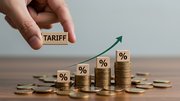News
Why upscale, newer brands can escape negative Groupon effect
Some experts caution that restaurant brands may come across as desperate when they offer daily deals, but a new study from the University of Maryland's Robert H. Smith School of Business reveals certain types of venues can escape potential damage to their reputations.
June 19, 2015
Some experts caution restaurant brands may come across as desperate when they offer daily deals, but a new study from the University of Maryland's Robert H. Smith School of Business reveals certain types of venues can escape the potential damage to their reputations.
That's because the negative effect tends to be concentrated on restaurants at lower price points, said Anand Gopal, a Smith professor and study co-author. In the case of upscale restaurants, offering a deal either does not hurt the reputation but can actually boost it—probably because customers view those restaurants as more confident and offering the deal from a position of strength.
The study offers details about the dynamics of an omnipresent form of promotion in the digital economy. These Groupon-style deals are on track to bring in $5.5 billion annually by 2016, Gopal said.
“This is one of those areas where there's a lot of opinion but not a lot of rigorous research,” Gopal said.
The study included both an analysis of real-world data and online experiments, which focused on about 2,000 restaurants in and around Washington, D.C., and assessing connections between deal offerings and Yelp ratings from December 2011 to December 2012. Besides Groupon, the study included deals from Living Social (based in Washington with a strong presence), Amazon Local, Yelp and other vendors. Overall, the researchers examined 2,425 deals.
In addition to price point, the age of a restaurant was also an important determinant of how a coupon was viewed, according to the study. Consumers seemed to assume new restaurants would want to attract patrons any way they could, and viewed the deal leniently. They perceived deals from older restaurants with more skepticism.
You can't ignore the daily deal
The study also looked at the effect of restaurants' decisions to offer online deals based on its peer restaurants. Surprisingly, restaurants that failed to offer a deal but which existed in a neighborhood in which its competitors did offer coupons suffered a reputational hit.
"You cannot isolate yourself from these effects," Gopal said.
The online experiments helped to nail down an important issue: They showed the reputational declines stemmed directly from the existence of online deals, and not from a genuine decline in service that might occur because a restaurant can't handle the increase in business that a coupon might produce. In those experiments, test subjects looked at a mock Yelp profile of an Italian restaurant, either high-priced or low-priced, either offering a deal or not. They then indicated on a seven-point scale how likely they'd be to go, and how good the restaurant was likely to be. There was no actual restaurant visit, yet people rated restaurants offering coupons lower.
While other researchers have documented the existence of a negative "Groupon effect" on restaurant reputation, this study has a more nuanced look at how and when that effect plays out, said Jorge Mejia, a Smith PhD candidate and study co-author. "This is the first time that anybody, to our knowledge, has shown that Groupons can have a positive effect, Mejia said.
 ChatGPT
ChatGPT Grok
Grok Perplexity
Perplexity Claude
Claude




